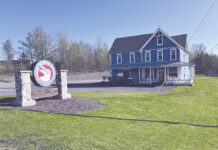We all know a few people who think of themselves as the smartest person in the room. We also know a handful of people who actually are the smartest person in the room.
Neil Harl was the latter — he was the smartest person in the room wherever he went, and everyone either already knew it or quickly discovered it. More importantly, Harl knew it, too, and he often used his fierce intellect and equally quick smile to dominate public debates and charm dinner guests.
Harl died Nov. 4 in Ames, Iowa, the home of Iowa State University and his academic home since his freshman days there in 1951. His record is legendary: a bachelor’s degree, two years of military service, one year as an ag editor, then a law degree, a Ph.D. in economics and, a full professorship and endowed chair at ISU by 1976.
During that remarkable rise, Harl also made himself into the most published, most sought-out ag attorney/ag economist in the nation. During his career he would publish 29 books and give more than 3,400 presentations in 43 states and 17 foreign nations. And, of course, he kept an immaculate record of it all.
Courageous act
In 1981, as his national reputation was soaring, Harl did one of the most courageous things I’ve ever seen: he put everything he had — his career, the accolades and his impeccable reputation — on the line to predict that fast-expanding farm debt and the just-passed Reagan tax cuts would bring economic calamity to rural America. It wasn’t a guess; it was an act of conscience.
In Aug. 1981, he would write a decade later in his book The Farm Debt Crisis of the 1980s, he had spent weeks studying the Reagan Administration’s new tax cuts to update lecture notes. What he learned, though — when combined with the tight money policy of Paul Volker’s Federal Reserve — troubled him.
He soon sounded the alarm through speeches, op/eds, and conversations with reporters. Harl supplied the facts, figures and forecasts; the newspapers supplied the gongs.
His warnings, however, were met by scowls from ag bankers and rural politicians. All were certain that the 1970s’ fat times would continue to roll under the White House’s “supply side,” free market philosophy.
“‘What are you trying to do to our president?’” he was asked by “a flying wedge of Republican stalwarts” at a 1981 banking conference in Des Moines, he later wrote. “I assured the phalanx of critics,” he explained “‘… that I was indeed a loyal Republican (and that) there was just one thing worse than borrowing money, and that was voting Democratic.”
Correct call
It made no difference; the hatchets were out for Harl, and they were sharp, powerful and relentless. He stayed on message, however, and by 1984, everything Harl had said would happen had either happened or was happening.
Ag banks were bleeding bad loans, many Farm Credit banks needed federal bailouts and thousands of farmers and ranchers were either closing their barn doors for good or having lenders foreclose ‘em. It was the biggest U.S. farm crack-up since the Great Depression.
Harl didn’t waste his or rural America’s time gloating; he went to work on ways to ease the debt that was crushing farmers and banks alike.
His specialties, law and economics, gave him unique insights on how lenders and the government could work together to develop new strategies and assistance programs to work through mountains of farm debt while healing broken markets. And, slowly — far too slowly for far too many — the laggards finally listened to what the farmboy professor was saying.
Harl had been right all along and only later, decades after the calamity had passed, would he acknowledge that his critics had been wrong. Dead wrong, in fact.
But saying it didn’t make him the smartest person in the room. It did, however, make him one of the most courageous and, sure, more than just immodest. It made him, in fact, Neil Harl.














